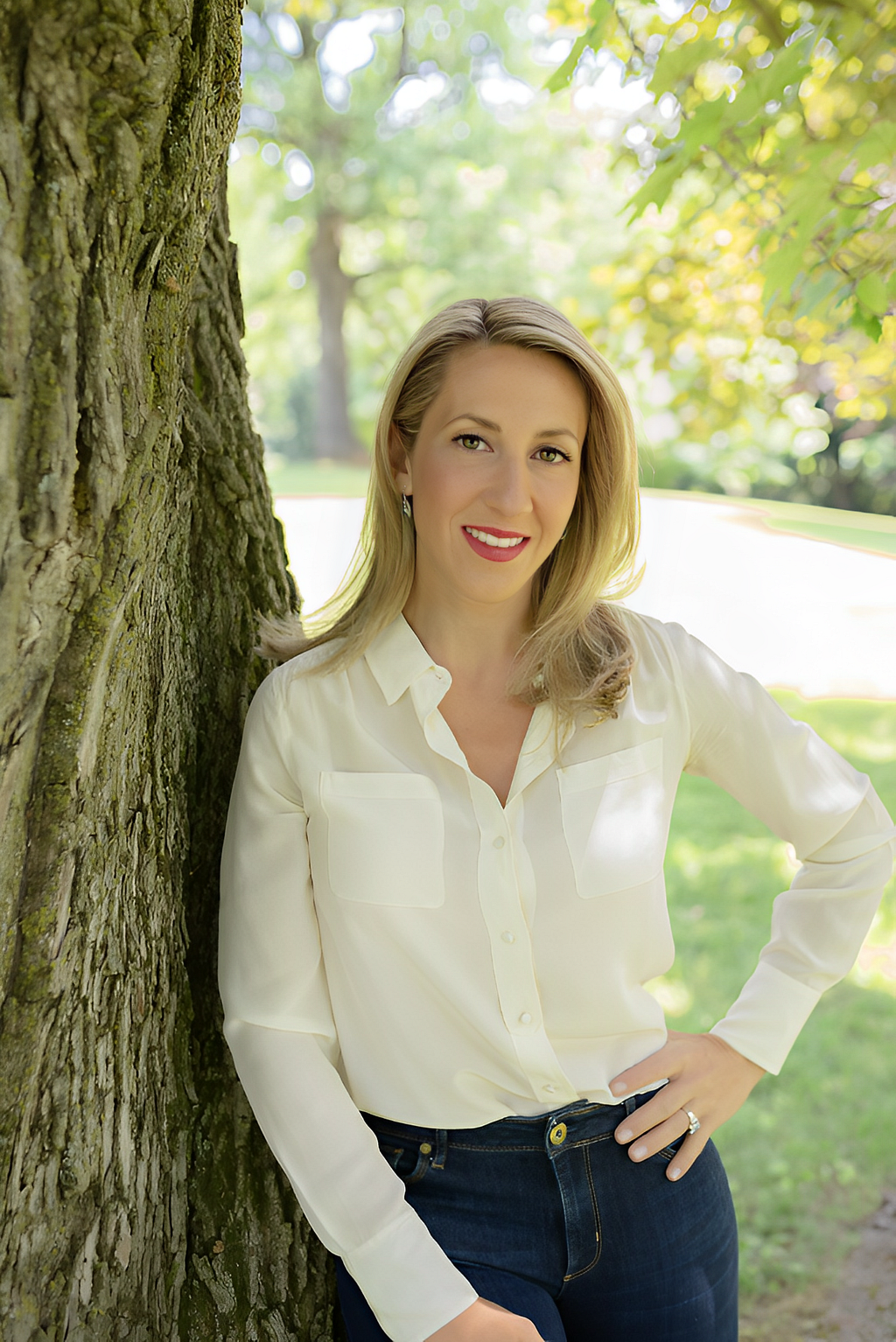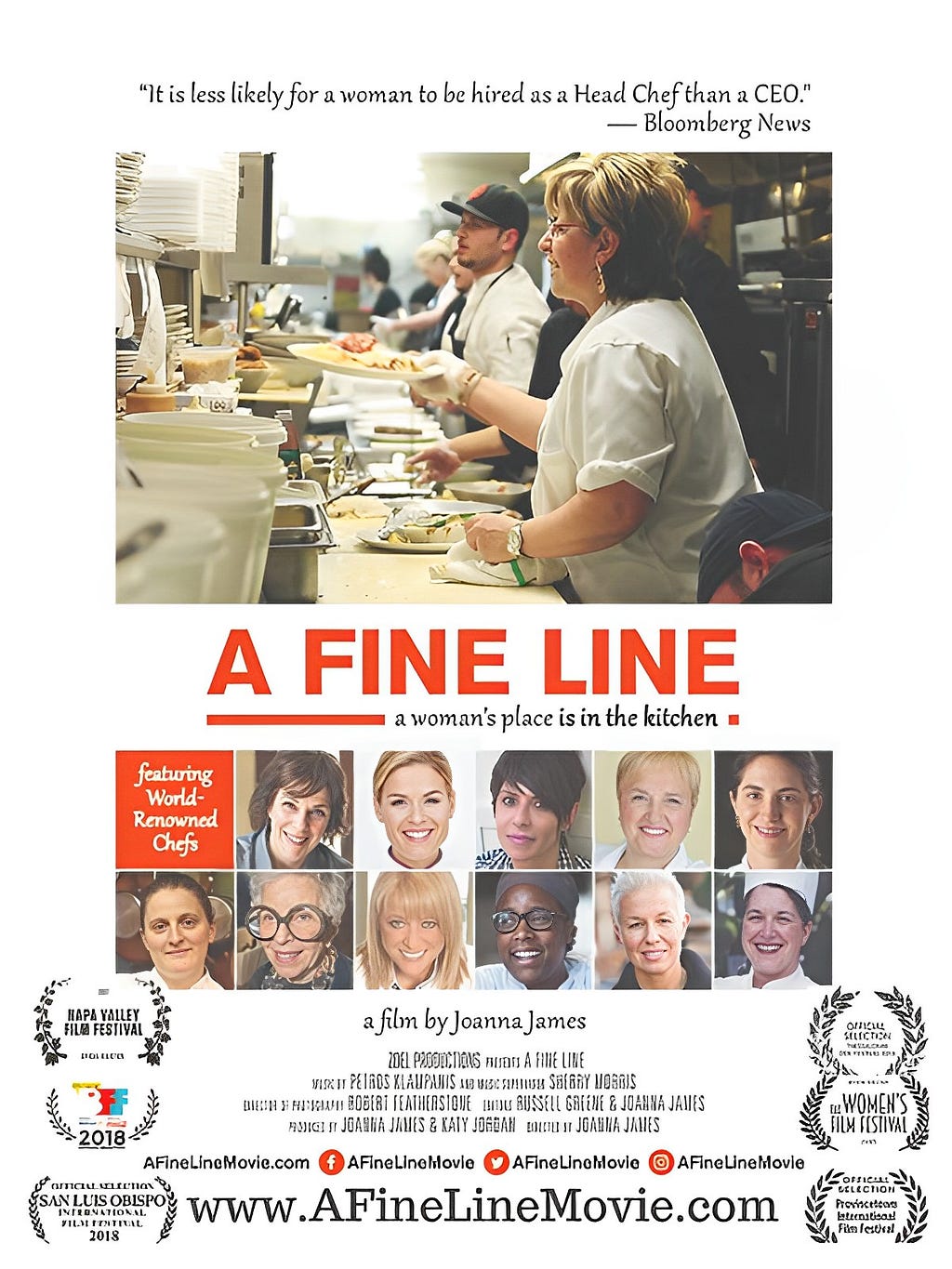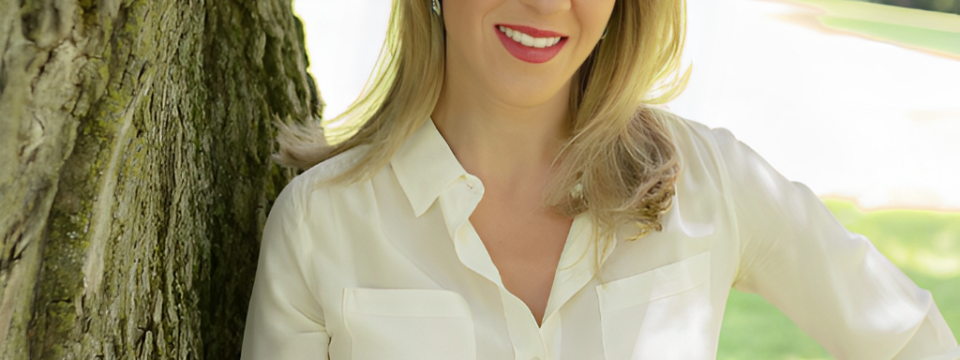
Don’t work with selfish, greedy or short-sighted people. It may take longer or at times feel lonely, but base your creative decisions on the intention you set for why you’re making this film in the first place and how you intend on doing it. All else will eventually fall into place.
As a part of our series called “5 Things I Wish Someone Told Me When I First Became A Filmmaker”, I had the distinct pleasure of interviewing Joanna James.
Joanna James is the founder and CEO of AMZ Productions, which has produced the award-winning documentary A Fine Line, a short series and multiple corporate productions. She is a women’s rights activist who founded the not-for-profit 501c3 MAPP to empower more women into leadership through mentorship and advocacy. Having a passion for storytelling, her work has been featured on PBS, The O Magazine, NPR, Forbes, The Boston Globe and many other media. As a member of Show&Tell, Joanna has built partnerships with PepsiCo, Marriott and BMW and has spoken for Fortune 500 companies like Google and Compass, to universities including Harvard and the Culinary Institute of America. Joanna hosted a special screening engagement on Capitol Hill with the National Partnership for Women and Families with congresswomen and Fortune 500 female executives in attendance. Prior to filmmaking, Joanna was a newspaper reporter interning at The Boston Globe, was awarded Best Environmental Reporting from the New England Press Association and covered the 2004 Summer Olympic Games in Athens. Joanna has three little girls who inspire her work and a life partner who brings it all together.
Thank you so much for joining us in this interview series! Our readers would love to get to know you a bit better. Can you tell us a bit of the ‘backstory’ of how you grew up?
My first memories connected to movies are as a 3-year-old at my parent’s movie store. I would sit in front of a television for hours every day, watching fairy tales playing on VHS. Funny enough, I recently realized that many of those classics with Shelly Long narrating were directed by Ron Howard and Steven Spielberg and featured talent like Robin Williams, Christopher Reeves and a long list of people who would become some of the best in the industry.
It goes to show the power of good storytelling at any age. I was hooked without realizing it until many years later. From my love of writing, curiosity and wanting to share the underdog’s story, I became a newspaper reporter. I never thought it would be possible for me to make a movie in a million years.
Can you share a story with us about what brought you to this specific career path?
It wasn’t until I wanted to share my mother’s story that I realized I couldn’t do justice to it by writing it; she had to tell it. So I hired a film crew I found on Craigslist and directed my first-ever film shoot. Little did I know that was just the very beginning of a long journey of making my first documentary — putting together an award-winning crew and falling in love with filmmaking.
Can you share the funniest or most interesting story that occurred to you in the course of your filmmaking career?
There were lots of little miracles along the way, like finding a box of Super 8 footage in my grandfather’s basement, which would prove pivotal in capturing the backstory in a budget-friendly way. It also made us feel like he was looking down, laughing and telling me he was always there. Or, during one of our early rough cut screenings, who should walk in but Ahmir “Questlove” Thompson, which was an amazing feeling considering how much of a fan me and my husband are of his.
Of course, I’ll never forget early on in production, it was a nine-hour, non-stop day, and I was breastfeeding and felt like I was going to pop. So as I was interviewing a psychologist, behind the camera, I was also breastfeeding because I couldn’t hold off any longer — nor could the crying baby.
Who are some of the most interesting people you have interacted with? What was that like? Do you have any stories?
Making my first film and being so hungry to get it done, it was amazing to work with people who felt that same passion — to not care about what typically motivates people, but doing it to learn, grow together and have their name attached to something they would be proud of.
I was learning on the job from really established editors and cinematographers who were so generous with their knowledge and who also trusted my vision and voice. It validated my perspective as a young, female filmmaker that I have to be open and listen, but at the end of the day, trust my instinct and be decisive.
None of us are able to achieve success without some help along the way. Is there a particular person who you are grateful towards who helped get you to where you are? Can you share a story about that?
I was able to direct, produce and co-edit my film, “A Fine Line,” a documentary exploring why only 7% of head chefs and restaurant owners are women when traditionally, women have always held a central role in the kitchen.
The film was so well-received at film festivals and screenings and gained accolades. After the high energy of the creative process for that, I realized I needed even more effort, investment and guidance on the business side. I was never going to sign a bad deal after all the blood, sweat and tears I put in. But I did not only want to make sure this film would get seen but also create an impact since it was so personal to me. Having met Peter Broderick and Keith Ochwat of Show&Tell, I could clearly tell I was in good hands by the first few conversations. They pulled the curtain off the business side of the film industry to show me what was achievable and when and what I could do for myself without relying on gatekeepers who may not give me a chance. That was all I needed to set things in motion on how I would ultimately get “A Fine Line” distributed on all major airlines, corporate screenings in front of multiple Fortune 500 companies, scores of educational screenings, a national broadcast PBS premiere and a social impact campaign that became the building blocks to the 501c3 I manage today, MAPP.

Can you please give us your favorite “Life Lesson Quote”? Can you share how that was relevant to you in your life?
“Just Do It,” no excuses or pity party — make it happen or move on. And the advice Pablo Picasso’s mother gave him, whatever you do, do it the very best. Something along the lines of, “If you are a soldier, become a general. If you are a monk, become the pope. Instead, I was a painter and became Picasso.”
Can you share three reasons with our readers about why you think it’s important to have diversity represented in film and television? How can that potentially affect our culture?
Diversity matters because representation matters. I never imagined in my wildest dreams that I could ever make a movie because when I was growing up, all the greatest film directors that got all the media and press were white, established males. It felt more like a club you had to get invited into as opposed to working your way into. It wasn’t until many years later that I learned there was another amazing Coppola (Sophia Coppola rather than her father Francis Ford Coppola). She became one of my favorites.
I started to see women calling the shots behind the camera like Kathryn Bigelow, Ava DuVernay, Chloé Zhao, Greta Gerwig — the list goes on. You can imagine what a difference that is for girls today wanting to embark in this business versus 30 years ago. That is especially relevant not only for gender and age, but as a white woman, I know I have additional privilege than women of color who are faced with even more hurdles to do what they love and are so good at. That is why mentorship is so important.
Organizations like Show&Tell provide access to resources and knowledge giving us all an equal chance to go for it. Show&Tell recently launched its acquisition and distribution service, pioneering a new and profitable approach to independent documentary distribution. Their team is attending Sundance Film Festival 2023 in January to shop for films like mine, and I’m excited to see filmmakers flourish from their methodology. I want others to see that this model of audience building, revenue generation and impact works.
What are some of the most interesting or exciting projects you are working on now?
After making a documentary, shorts and corporate productions, I am really committed to making a docuseries that could change the way more viewers consume content, leaving their traditional silos of what is force-fed to them. It’s frustrating to think how rare and brave it is for studios to try something new rather than just do whatever is on-trend until one finally does, and then that genre becomes the new “it” thing. Although content is queen today, wouldn’t it be so refreshing to have more platforms take chances on quality content based on art, innovation, entertainment and dare I say “issue-oriented” rather than only being focused on what’s “binge-worthy” or true crime?
Which aspect of your work makes you most proud? Can you explain or give a story?
The fact that I started from the ground up without any industry contacts, no formal filmmaking education, no money, and pregnant with my first baby while delivering two more kids during post production and distribution and ultimately able to make my first documentary as a tribute to my mother is something I am very proud of. Especially that I not only made the film, but didn’t rest until I felt like the people who it was made for got to experience it and see the impact we were able to create from it. To share this experience with my entire family from the very beginning to touring across the country makes it extra special.
What are your “5 things I wish someone told me when I first started” and why. Please share a story or example for each.
1. Your work ethic, vision and dedication to the craft are worth so much more than who you know or who you think you know. Just get the job done.
2. Don’t wait for anyone’s approval or validation; make something you’re proud of and will last the test of time.
3. Value your work. It was a long haul of entrepreneurialism, but Keith and the community from Show&Tell showed me that we can do really well for ourselves financially if we learn the value of what we’ve created, the demand for it and our own self-worth. That will set the tone for all my future work.
4. Don’t work with selfish, greedy or short-sighted people. It may take longer or at times feel lonely, but base your creative decisions on the intention you set for why you’re making this film in the first place and how you intend on doing it. All else will eventually fall into place.
5. Have fun. Starting a new film project is like jumping off a cliff about to do the craziest thing, so relish in the process (even the stressful, insane parts) and be present. Especially for those pinch-me moments when you scored an epic interview, or you are capturing what feels like a perfect scene. Slow down to enjoy it.
When you create a film, which stakeholders have the greatest impact on the artistic and cinematic choices you make? Is it the viewers, the critics, the financiers, or your own personal artistic vision? Can you share a story with us or give an example about what you mean?
First and foremost is my artistic vision, which if done right, should bring the story to life. Then, it’s about evaluating those decisions along the way based on whether it is resonating with the viewers. I think if that equation works, the financiers and distributors will be happy with the results.
You are a person of great influence. If you could start a movement that would bring the most amount of good to the most amount of people, what would that be? You never know what your idea can trigger. 🙂
I think the basis of any great movement should be inspiration, education and purpose. If you inspire people to believe in themselves they want to learn more and do better. Once they have built their confidence, they can more clearly see what their purpose is and share that gift with society. I have seen this first hand with the movement we have created for a sea level of equity and empowerment from the momentum of “A Fine Line,” now building the foundation of the 501c3 MAPP. When women tap into their purpose, and we see that global reach, it is astounding all we can accomplish and solve when given the chance.
We are very blessed that some of the biggest names in Business, VC funding, Sports, and Entertainment read this column. Is there a person in the world, or in the US whom you would love to have a private breakfast or lunch with, and why?
I may be getting greedy curating a couple of luncheon guestlists, but I come from a family of chefs and restaurateurs, so it’s all about the company over a great meal.
The ultimate dream would be Oprah and Ava DuVernay. I think that would be the most brilliant and fun company. Oprah is my all-time idol, and I am a hardcore girl fan of Ava. My youngest daughter is named after her.
The other luncheon is with Tom and Rita Hanks, hoping Spielberg would show up unannounced and stay for coffee. As philhellenes, lovers of history and today’s greatest actor married to a wise Greek woman, I would pitch them incessantly to make a multigenerational biopic that takes place in both Greece and America. I like to dream big.
How can our readers further follow you online?
@joannajamesfilms, @afinelinemovie and @mappimpact. You can also learn more about Show&Tell here.
This was very meaningful, thank you so much! We wish you continued success!
Joanna James of AMZ Productions: 5 Things I Wish Someone Told Me When I First Became A Filmmaker was originally published in Authority Magazine on Medium, where people are continuing the conversation by highlighting and responding to this story.
